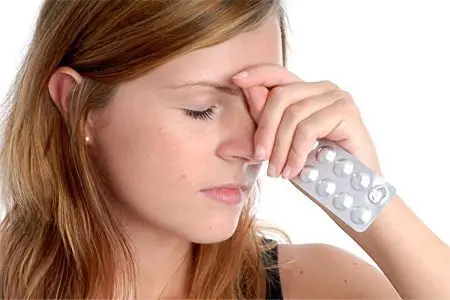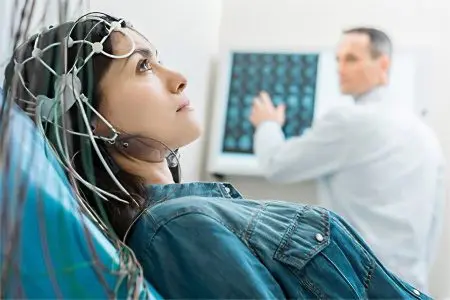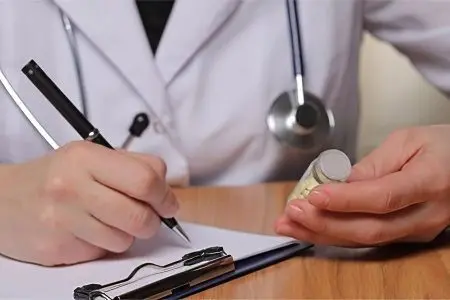Contents

Dizziness, as a symptom, is surrounded by many myths. For example, it is believed that the most common cause of dizziness is damage to the cervical spine (osteochondrosis, herniated disc, etc.).
It is also customary to consider dizziness as a symptom of brain diseases. All of these reasons can provoke bouts of dizziness, but they are not a priority. Therefore, before proceeding with the treatment of dizziness, it is so important to familiarize yourself with the main causes of this condition.
Why is your head spinning?

By far the most common cause of dizziness is medication. Dizziness is a side effect of various medications.
These include:
Drugs to reduce pressure.
Medications to lower blood cholesterol levels.
Hormonal drugs.
Sometimes, to get rid of dizziness, no serious intervention is required, just changing the drug is enough.
Injury to the cervical spine is the second most common cause of dizziness. For example, the displacement of the upper cervical vertebrae.
If a person has a hernia of the cervical region, then in addition to dizziness, he will be haunted by very strong pains radiating to the arm. In general, it is not difficult to understand that dizziness is a consequence of damage to the cervical spine, since it is pain that always comes to the fore. They can be concentrated both in the neck itself and in the back of the head, or under the back of the head. Another hallmark of the pathology of the cervical spine is an increase in dizziness while turning the head. You can do a simple test yourself. It is enough to turn your head to the side in a sitting position. If at the same time dizziness increases, then you really need to examine the spine.
The third most common cause of dizziness is various brain damage. It could be his strokes, injuries or tumors. It is possible to exclude this pathology after undergoing an MRI of the organ.
The fourth cause of dizziness is emotional upheaval. This can also include stress, overwork, depression. Even some emotions can lead to dizziness, such as fears or a serious choice problem facing a person.
Also, one should not forget about such a cause of dizziness as damage to the auditory nerve or inner ear. Such dizziness is called peripheral.
Certain dietary habits can cause dizziness. For example, vegetarianism. Health problems develop due to a lack of B vitamins and other trace elements. This also includes fasting and a low-carbohydrate diet. Dizziness develops with a sharp drop in blood sugar levels.
For some women, dizziness may occur during menstruation or during pregnancy. Menopause is that period in the life of the representatives of the weak half of humanity, during which dizziness may begin to haunt them. At the beginning of menopause, it will be especially intense, and over time it weakens and completely disappears.
Otitis (inflammation of the ear) is one of the ENT pathologies that can provoke the development of dizziness. This also includes colds: influenza, acute respiratory infections, SARS, etc.
How to determine the cause of dizziness?

It is very difficult to independently determine the cause of dizziness, since there are many of them. Therefore, medical advice is necessary. First you need to visit the office of a neurologist. During the examination, the doctor will perform specialized tests, after which he will refer the patient to an MRI of the brain and Doppler ultrasound of the vessels of the brain and neck (USDG). These two studies will reveal pathologies in the neurological field.
If no diseases were found, then you should go to the otolaryngologist. He is obliged to check the condition of the auditory nerve and the inner ear.
As a rule, these examinations are enough to make a correct diagnosis.
Treatment of dizziness with modern means

You need to understand that without making a correct diagnosis, you can be treated for dizziness for a long time and to no avail. Therefore, high-quality diagnostics is of great importance. Therefore, first of all, you need to consult a doctor.
To eliminate attacks of dizziness, the doctor will prescribe special medications. They improve the blood supply to the brain. Sedative drugs help to cope with attacks of dizziness for a number of patients. Sometimes you can get rid of the problem by taking antihistamines.
It is permissible to try to take a course of soft massage of the collar zone, or go to an appointment with an osteopath. Such appointments can be given to patients with disorders in the cervical spine.
Sedative procedures help to cope with the problem of psychogenic dizziness. This includes bathing and floating. They relax the nervous system, which makes it possible to get rid of bouts of dizziness.
Video: Dr. Evdokimenko on the methods of treating dizziness:









